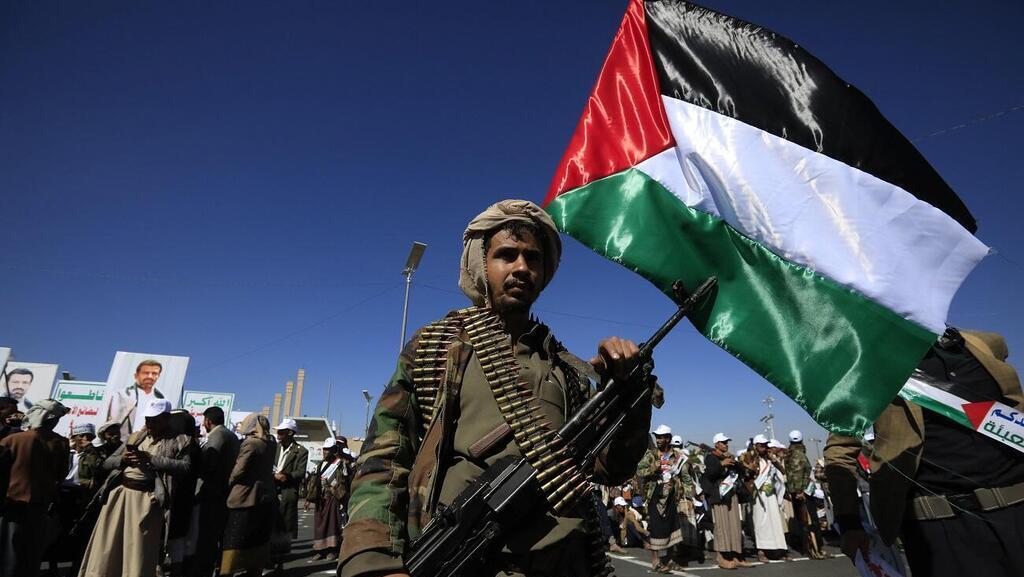
Egypt, Jordan and Saudi Arabia remain mum despite rising cost of Houthi attacks
Israel's neighbors are already suffering economic losses due to the decrease in activity in the Red Sea
The increasing threat of the Houthis to shipping traffic in the Red Sea as manifested in the attacks carried out in the last two days is not an Israeli problem but a regional and global problem. Israel's neighbors, including Jordan, Egypt and Saudi Arabia, are already suffering economic losses due to the decrease in activity in the Red Sea, but at this stage they are refraining from publicly speaking out against this maritime terrorism. They are also trying at this stage to publish as little data as possible about the scope of the damage.
The silence of these countries is against the background of the widespread popular support for the Palestinians and the fact that the governments of these countries do not wish to be portrayed as "protecting" the Israeli interest. Beneath the surface, talks are taking place between the governments of the region and the U.S. to establish an international coalition that will safeguard shipping traffic in the Bab-el-Mandeb Strait between the Arabian Sea and the Red Sea. Here, too, the talks are conducted secretly due to the Houthis' threats that they will harm any Arab country that responds to the American initiative.
Meanwhile, the losses of the countries in the region are accumulating. Egypt announced a few days ago that during November 2,264 ships passed through the Suez canal, compared to 2,345 ships in October 2023. This is a decrease of 3.5%. The decrease in the number of ships also resulted in damage to Egypt's revenues from the canel which amounted to $854.7 million in November, compared to $880.1 million in October, a decrease of about 3%. The damage in November was relatively limited since the Houthi attacks only started in the second half of the month. With the escalation registered since the beginning of this month, it seems that the damage to the Suez Canal's revenues will increase in December. The Suez Canal is one of the few important sources that bring foreign currency into Egypt and due to the severe economic crisis in which it is mired, this is a worrying development from Cairo's point of view.
Jordan has also been silent since the Houthi attacks in the Red Sea began, even though it seems that it is already paying a heavy economic price because of them. According to data published this week in Jordan, cargo handling at the port of Aqaba decreased by 16% last month. The number of ships arriving at the port of Aqaba, which is Jordan's only outlet to the sea, decreased that month by 14%, and there was also a 33% drop in roll-on/roll-off ships (carrying cars). This decline is a direct result of the security situation as well as the Houthi attacks in the Red Sea. Jordan, which is also in a delicate economic situation, has in recent years placed emphasis on the development of the Aqaba port and the surrounding economic area as a national project that can drive growth and attract foreign investment. What has been happening since the Houthi attacks began does not help these plans.
The regional power Saudi Arabia, which fought the Houthis for eight years, is still being hurt by the deterioration of the security situation in the Red Sea. The leading Saudi port, Jeddah, is located on the shores of the Red Sea and although the Saudis have not yet published recent data regarding its activity, it is likely that it is affected by the situation. Taking a longer view, it must be remembered that the Red Sea region is a significant component within Saudi Arabia's "Vision 2030" both in the logistics and tourism fields, and what has been happening in recent weeks does not help the Saudi effort in this regard.
Looking ahead, what the Houthis are doing should actually encourage trends that began to emerge in the Middle East before October 7 in the aspect of economic cooperation. After the conclusion of the war, the plan for a mega project presented in September to connect India and the Mediterranean, through the Gulf states, Jordan and Israel, despite all the challenges it poses, is expected to occupy a high place on the agenda of regional leaders.
First published: 13:31, 14.12.23















